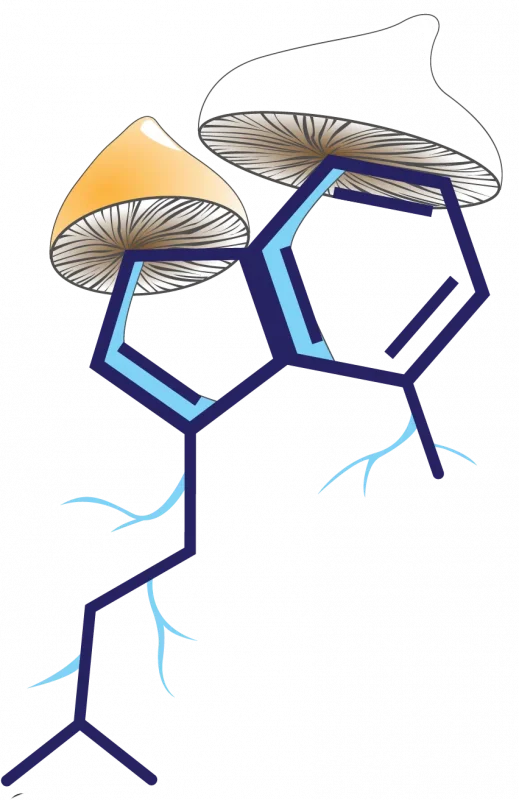Your Simple Guide To Understanding Microdosing
Microdosing is a practice that involves taking sub-perceptual doses of psychedelic substances, such as LSD or psilocybin, with the aim of experiencing subtle cognitive and psychological enhancements. The term “microdosing” gained popularity in recent years, with individuals from various backgrounds experimenting with this practice. While anecdotal reports have touted the potential benefits of microdosing, rigorous scientific research is still limited. This article aims to provide a comprehensive understanding of microdosing by exploring its definition, practices, potential benefits, and considerations.
What is Microdosing?
Microdosing refers to the practice of taking very low doses of psychedelic substances, typically around 10-20% of a standard recreational dose, with the intention of experiencing subtle effects without full-blown hallucinations. The concept of microdosing originated from self-experimentation and anecdotal reports by individuals who claimed enhanced creativity, focus, and well-being. However, it is important to note that there is no universally accepted definition or standardized protocol for microdosing. Studies like Anderson et al. (2019) have begun to explore the definition and practices associated with microdosing, contributing to a clearer understanding of this phenomenon.
Substances Used in Microdosing
The most commonly used substances in microdosing are LSD (lysergic acid diethylamide), psilocybin (the active compound in magic mushrooms), and mescaline (found in peyote cacti). These substances contain psychedelic properties and have been reported to produce perceptual and cognitive alterations even at low doses. The popularity of these substances in microdosing may be attributed to their widespread availability, relative safety profiles, and anecdotal reports of positive experiences. However, it is worth noting that individual responses to different substances can vary, and the choice of substance for microdosing should be made with careful consideration and understanding.
The Science Behind Microdosing
The scientific understanding of the mechanisms behind microdosing is still evolving. Animal studies and early research suggest that microdosing may modulate neurotransmitter systems, particularly serotonin receptors, which play a role in mood regulation, cognition, and perception. Research by Nichols (2016) demonstrates the potential of psychedelics, including substances used in microdosing, to affect serotonin receptors in the brain. Microdosing may also enhance neuroplasticity, promote new neuronal connections, and influence neural networks involved in cognition and emotion. However, more research is needed to fully elucidate the neurobiological mechanisms of microdosing and its specific effects on brain function.
Microdosing Practices and Protocols
Microdosing protocols can vary among individuals, and there is no standardized approach. Typical microdosing regimens involve taking a fraction of a recreational dose, usually every few days or on specific schedules. Dosage, frequency, and duration of microdosing can differ depending on personal preferences and goals. The objective of microdosing is to achieve subtle effects that enhance cognition, creativity, or mood without inducing full psychedelic experiences. Self-report surveys and qualitative studies, such as those conducted by Leahey et al. (2020), have provided insights into the diverse practices and experiences of microdosers. However, it is important to approach microdosing with caution, starting with conservative doses and gradually adjusting based on personal response.
Reported Benefits of Microdosing
Anecdotal reports suggest various potential benefits of microdosing. Individuals who engage in microdosing have reported increased creativity, improved focus, enhanced problem-solving abilities, and heightened mood. For example, a qualitative study by Polito and Stevenson (2019) explored self-reported effects of microdosing and found that participants perceived improvements in creativity, productivity, and emotional
well-being. However, it is important to note that anecdotal reports do not substitute for rigorous scientific research, and placebo effects, expectancy bias, and other factors may contribute to the reported benefits. Further research, including controlled studies, is necessary to validate and understand these reported benefits.
Considerations and Potential Risks
While microdosing is generally considered to be safe, it is not without potential risks and considerations. Individual responses to microdosing can vary, and some individuals may experience adverse effects such as increased anxiety, irritability, or perceptual disturbances. Moreover, the long-term effects of microdosing remain largely unknown. Research by Anderson et al. (2020) highlights the importance of considering individual vulnerabilities, set and setting, and potential risks associated with microdosing. Responsible use, informed self-experimentation, and self-monitoring are essential in mitigating potential risks and maximizing the potential benefits of microdosing.
Microdosing in Context: Legal, Ethical, and Societal Implications
The legal status and regulatory frameworks surrounding microdosing vary across jurisdictions. While psychedelic substances like LSD and psilocybin are classified as controlled substances in many countries, some regions have decriminalized or initiated efforts to explore therapeutic applications. Ethical considerations arise when individuals engage in self-experimentation and self-medication without professional guidance. The societal implications of microdosing include cultural shifts, public perception, and the influence of media portrayals. Open dialogue, responsible advocacy, and continued research are necessary to address the legal, ethical, and societal aspects surrounding microdosing.
Future Directions and Areas of Exploration
The future of microdosing lies in further research and exploration. Well-designed, placebo-controlled studies and clinical trials are needed to provide a more comprehensive understanding of the effects, mechanisms, and potential therapeutic applications of microdosing. Factors such as optimal dosing protocols, treatment duration, and long-term outcomes require investigation. Additionally, the integration of microdosing into therapeutic settings and mainstream healthcare requires careful consideration of ethical guidelines, professional oversight, and the development of standardized protocols.
Conclusion
Microdosing remains a subject of fascination and interest due to its potential cognitive and psychological benefits. While anecdotal reports and early research suggest positive experiences associated with microdosing, rigorous scientific research is still needed to establish its efficacy, safety, and optimal use. Understanding microdosing requires considering individual variations, scientific evidence, responsible use, and the legal and ethical contexts. Continued research, responsible practices, and informed discussions will contribute to a better understanding of microdosing and its potential role in enhancing cognition, well-being, and human potential.
[gap height=”130px”]
Shroomhub Online Magic Shroom Dispensary
Shroomhub is your most trusted online mushroom dispensary in Canada, dutifully providing quality products at the most competitive prices to customers across all territories. Our broad product range includes everything from micro-dose mushroom capsules to Psilocybin containing dried mushrooms, and even extends to LSD products and DMT. Shop online today and take advantage of our low prices and rest easy knowing the Shroomhub team as your order taken care of.





